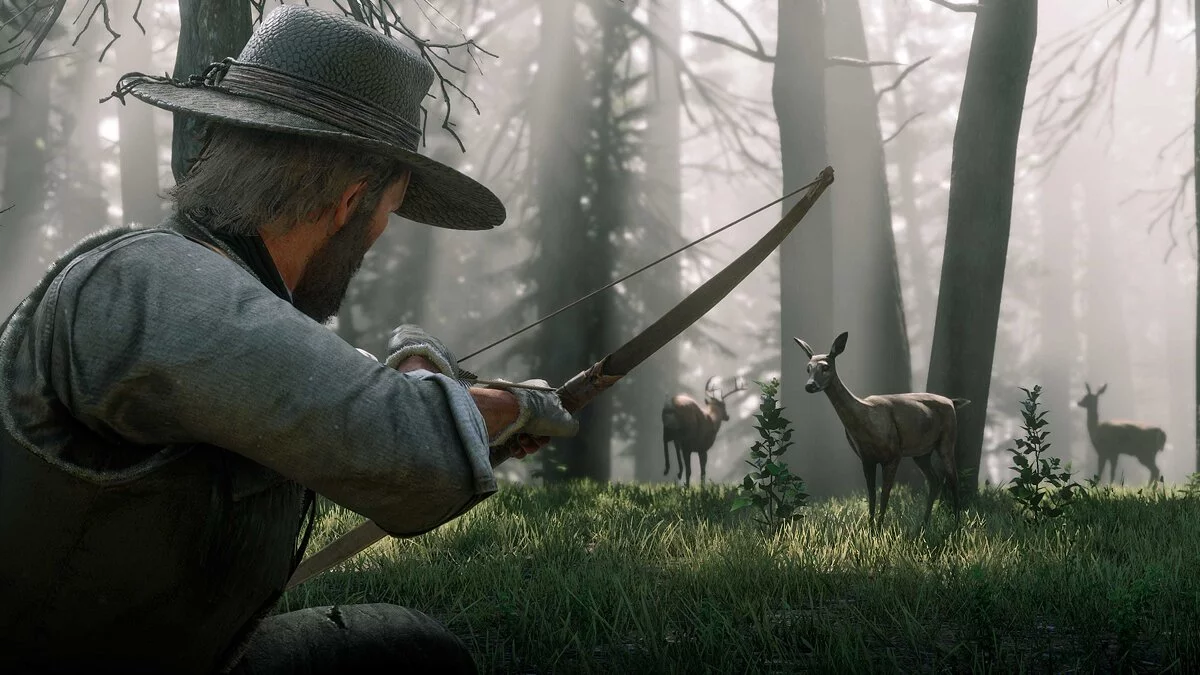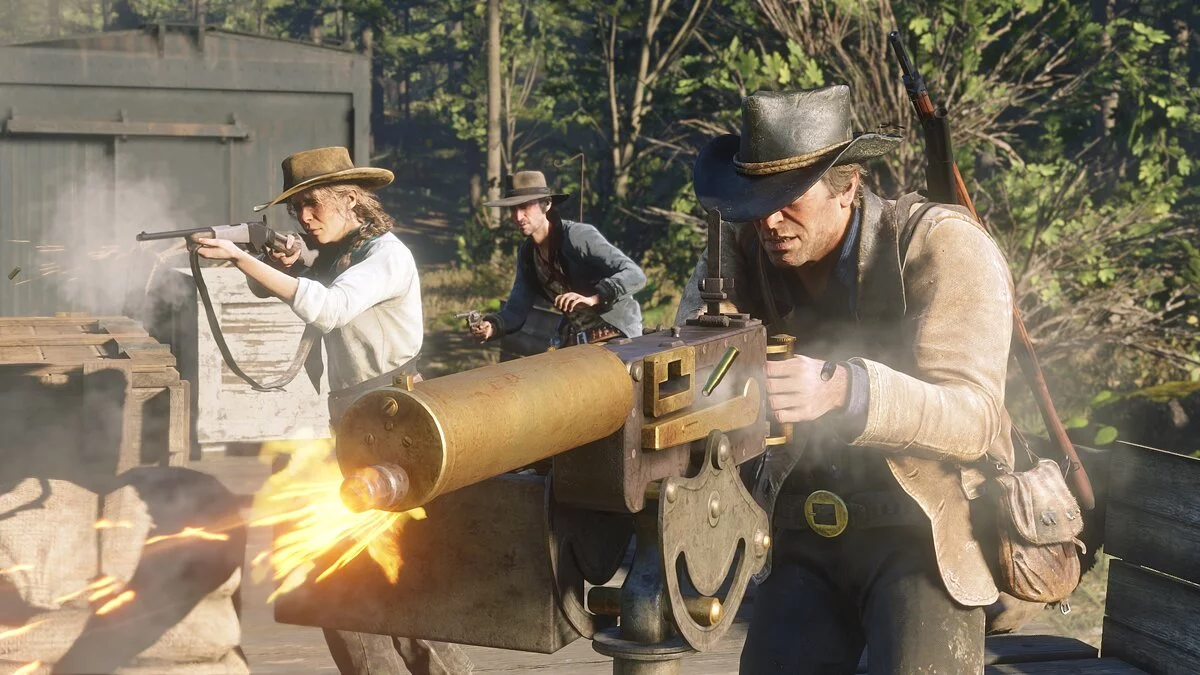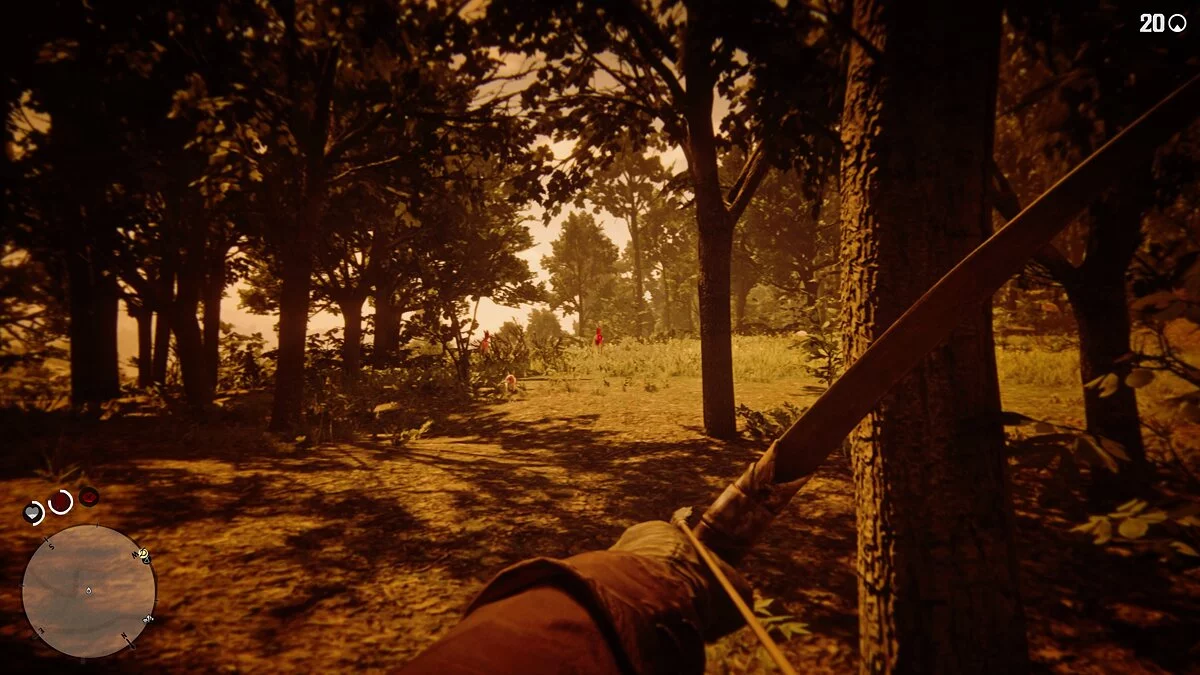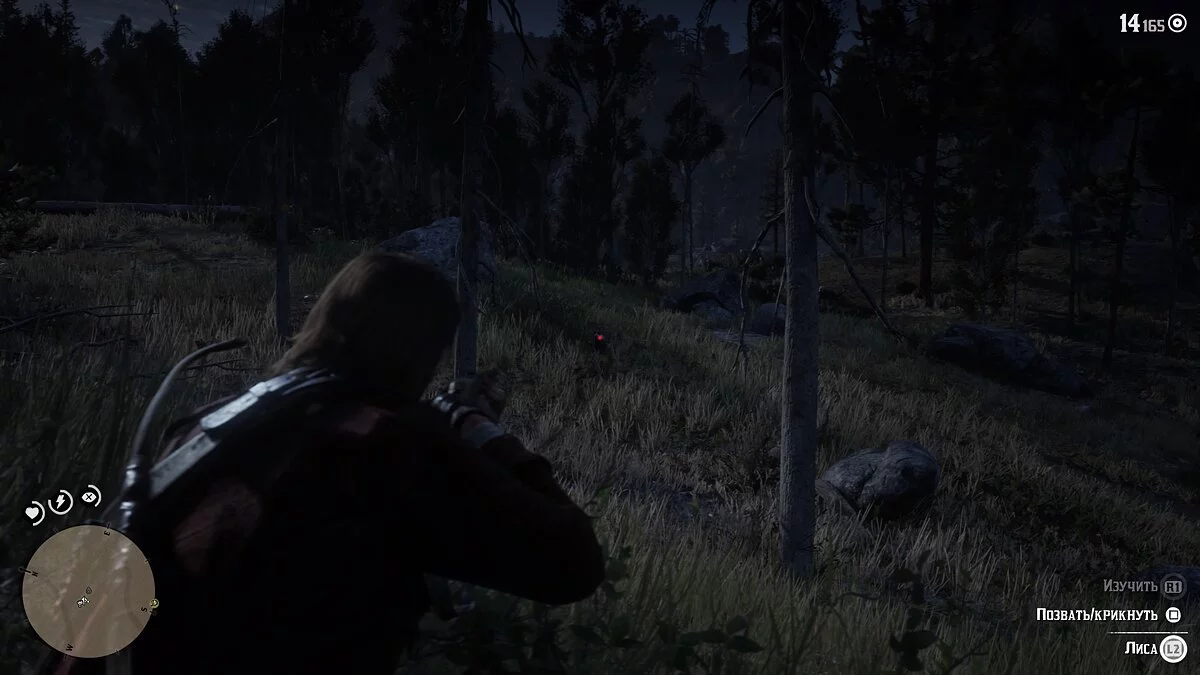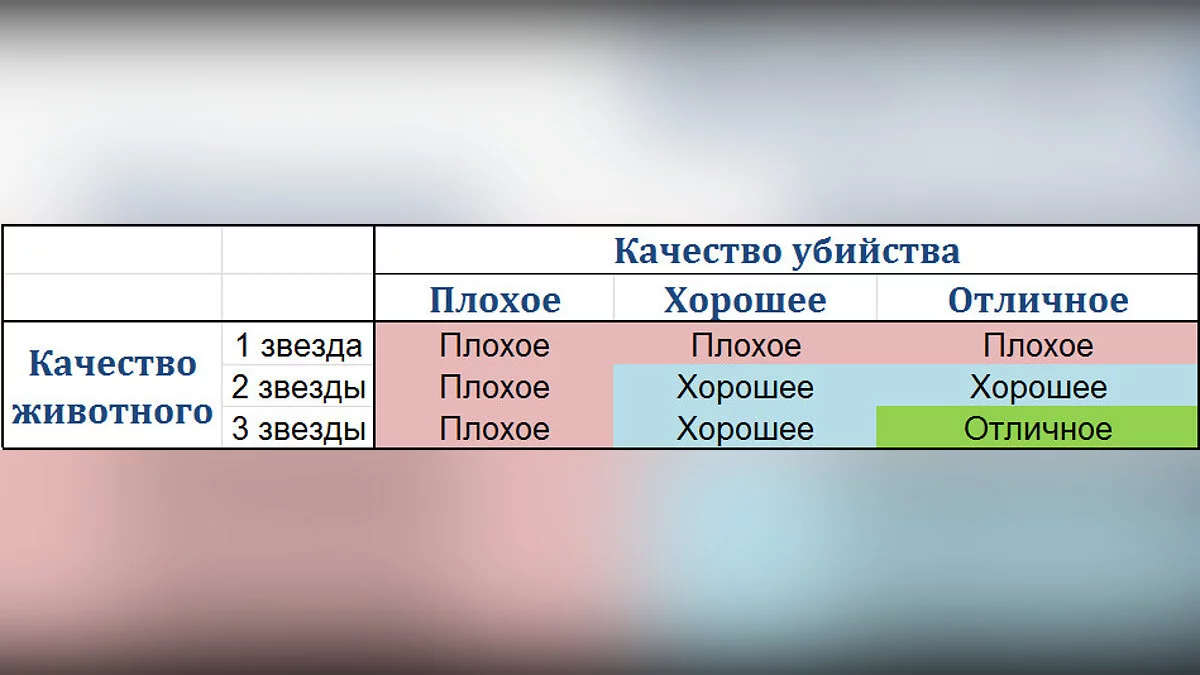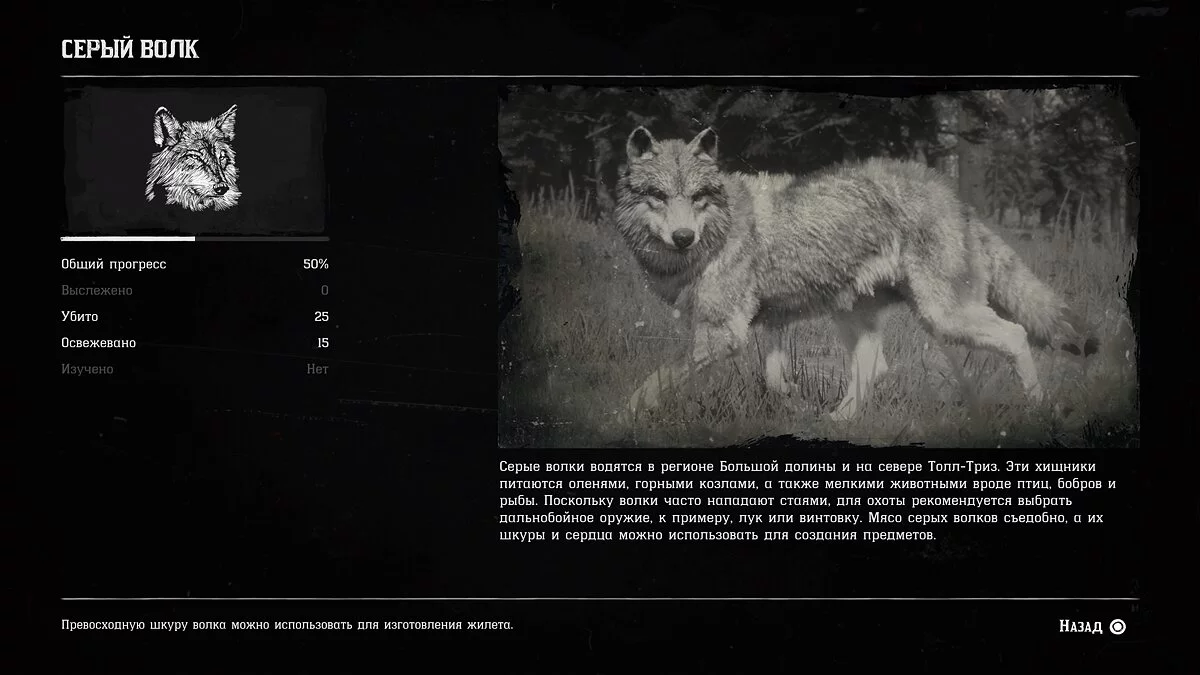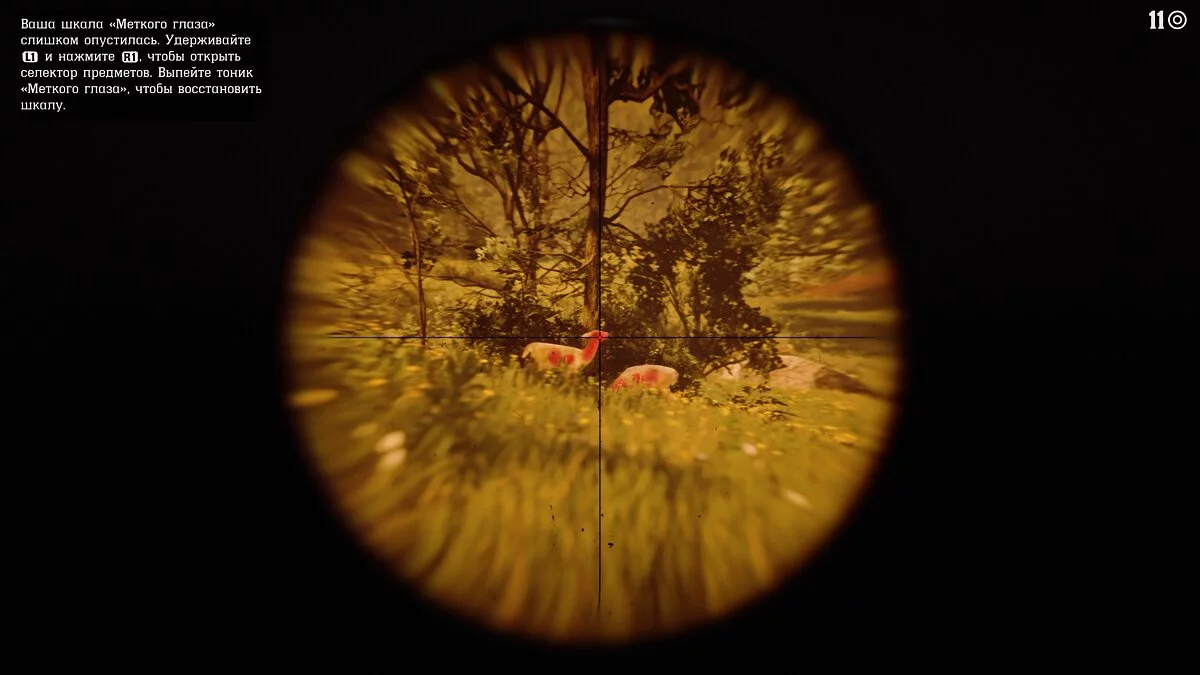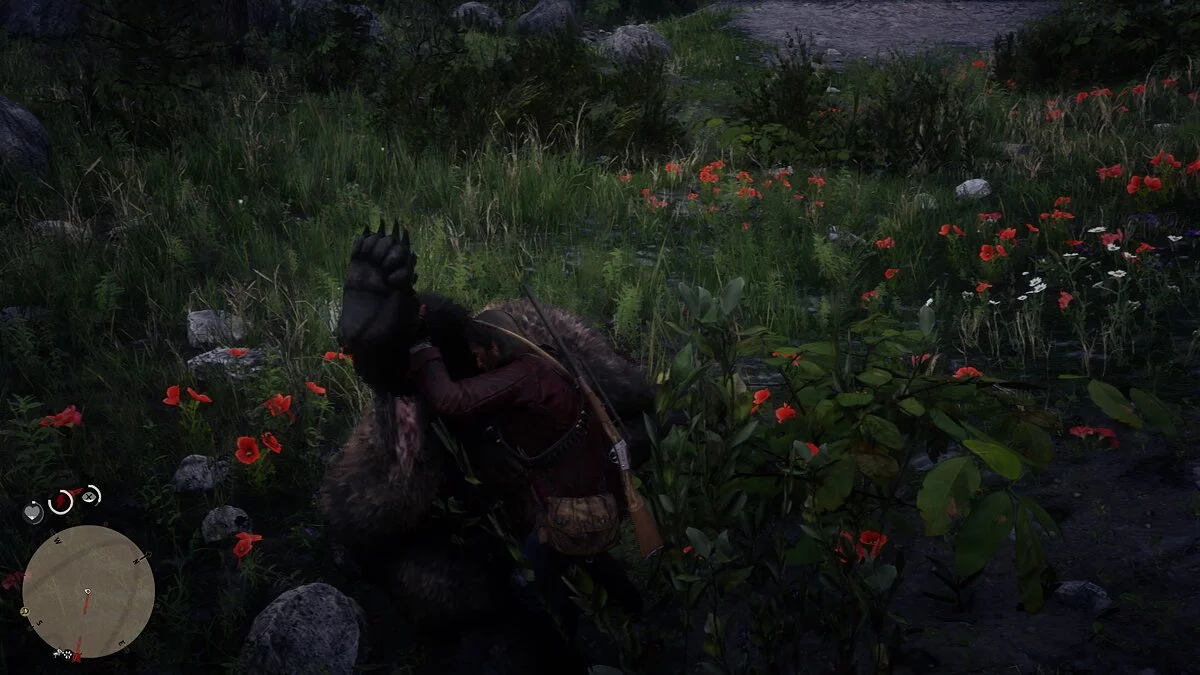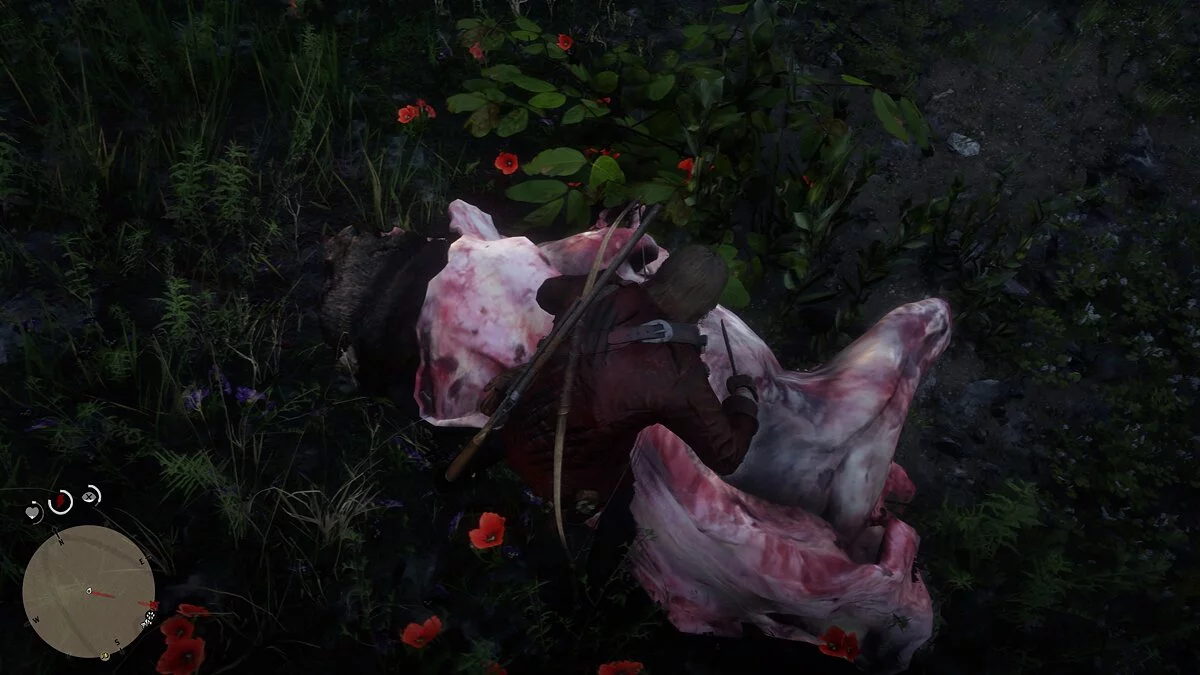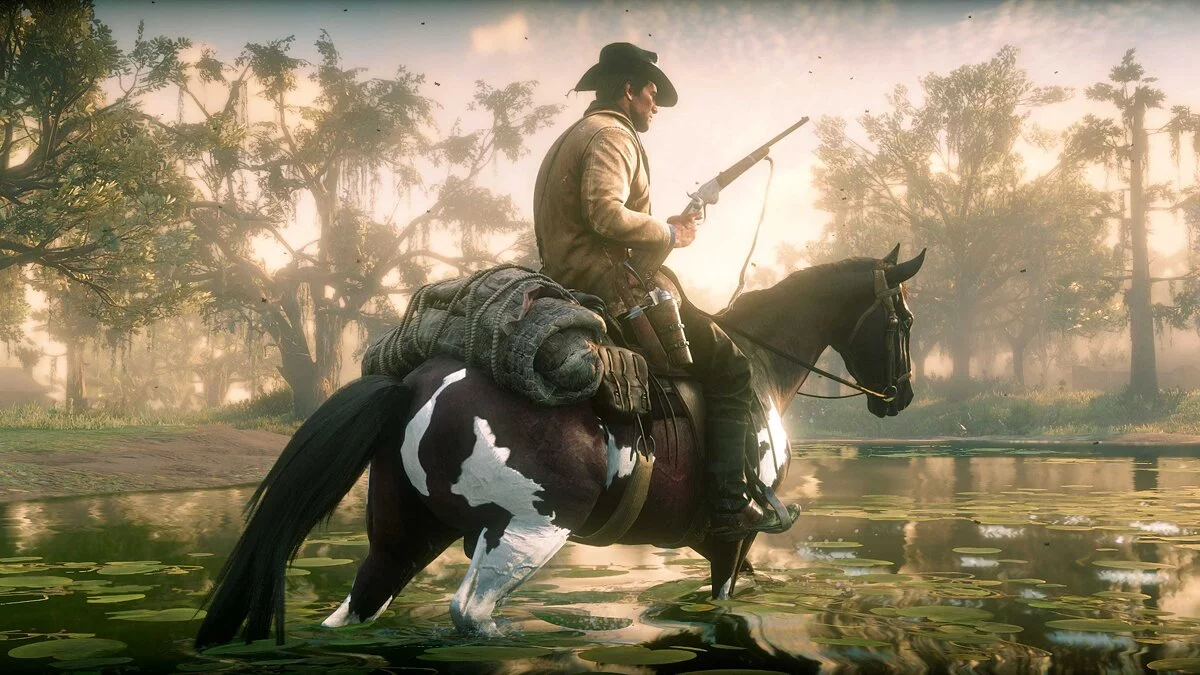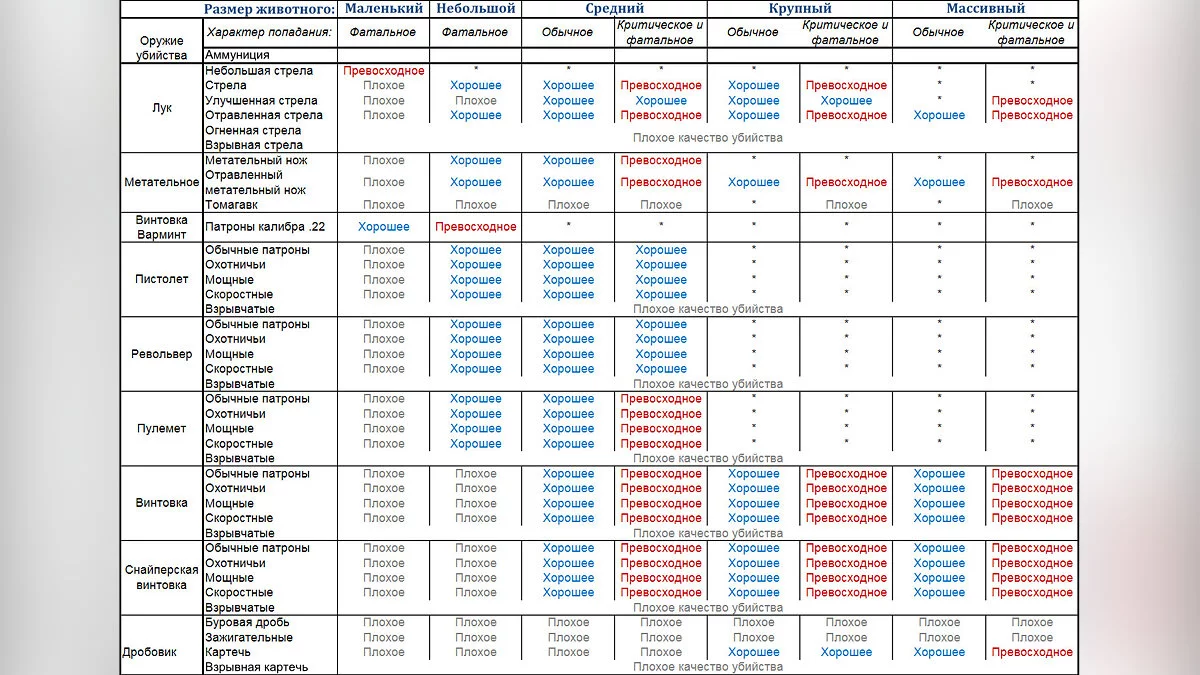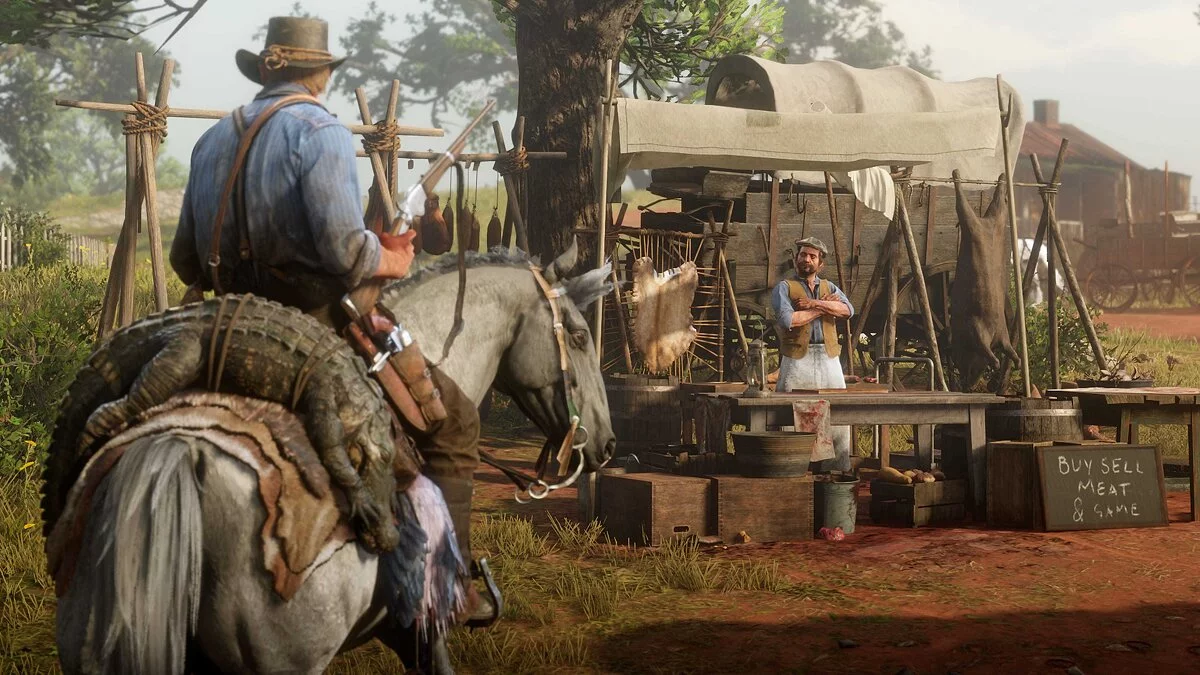Hunting in Red Dead Redemption 2: Choosing Weapons and Finding Perfect Pelts
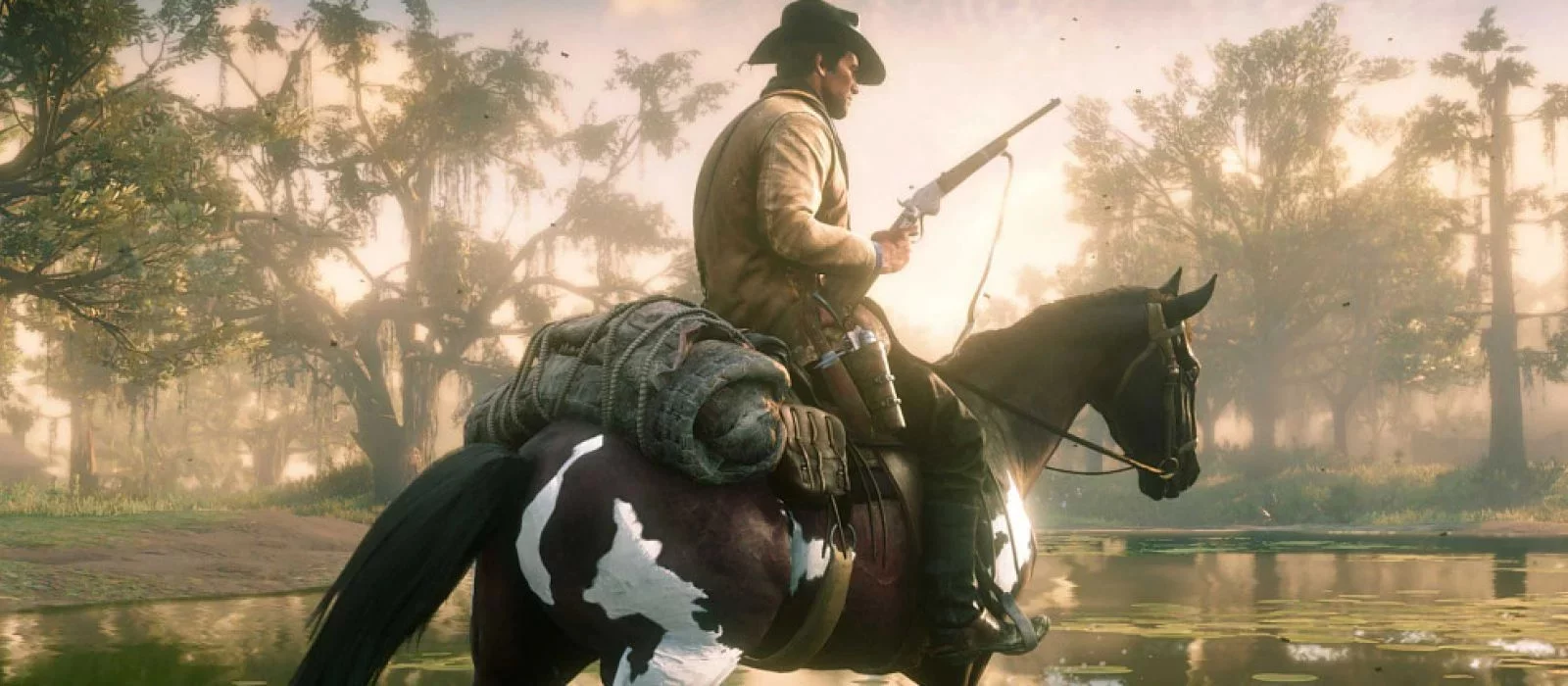
Hunting is one of the key components of Red Dead Redemption 2. As players explore the world, they encounter animals to hunt for their meat, pelts, bones, items to upgrade Arthur's satchel, and other useful materials. Read about the nuances and secrets of this fascinating activity and its connection to many other objectives in the guide!
Red Dead Redemption 2 Guides
- Where to find all Gold Bars in Red Dead Redemption 2: treasure maps
- Where to find Otis Miller's Revolver (golden) in Red Dead Redemption 2: map
- All Farms with Stashes and Treasures in Red Dead Redemption 2: Map and Walkthrough
- All Weapons in Red Dead Redemption 2: Where to Find the Best Guns
- The Entire Map of Red Dead Redemption 2: Symbols, Locations, Settlements
- Hunting in Red Dead Redemption 2: Choosing Weapons and Finding Perfect Pelts
- How to Upgrade Your Camp in Red Dead Redemption 2: Boost Morale, Increase Satchel and Food Supplies
- Where to Find 30 Dinosaur Bones in Red Dead Redemption 2 — Guide and Map
- How to Get the Best Horse in Red Dead Redemption 2
- Walkthrough for All That Glitters is a Stranger in Red Dead Redemption 2 — Treasure Map and Guide
- How to Find the 9 Satellite Graves in Red Dead Redemption 2: Guide and Maps
- Legendary Animals in Red Dead Redemption 2: How and Where to Find Them
Why is hunting important in Red Dead Redemption 2?
The hunting mechanics in Red Dead Redemption 2 are deeper than in most thematic projects. Be prepared to hunt constantly and have the appropriate skill and equipment.
Here's a list of the main benefits of hunting:
- Food — a great way to restore Arthur's health and stamina. He can cook when resting at a campfire. All meat cut from animals (different animals provide different meats and recipes) is consumed as food.
- Animal parts and even whole carcasses can be given to Pearson, the gang's butcher and cook, so he can prepare food for everyone or unlock Arthur's capability upgrades.
- On the other hand, animal parts are used for crafting various unusual items. For example, animal fat is used to make explosives, and feathers are used for special types of arrows.
- Arthur can skin carcasses — many animal parts are eagerly bought in souvenir shops, or the whole carcass can be sold to butchers.
- Some animal body parts are useful for creating talismans and trinkets. According to the developers, the teeth and claws of legendary animals possess mysterious powers.
- By skinning animals, the character gains experience and levels up the hunting skill. Reaching the rank of «master hunter» unlocks a plethora of new challenges, as well as access to the best equipment in the game.
How to hunt in Red Dead Redemption 2 — tips
Start by planning your hunt — decide which animal you're going after, what you need the carcass for, how far from the camp your target is, what weapon you'll use to kill it, and whether you'll skin the carcass on the spot or carry it back to camp.
Before hunting, Arthur needs to get a good night's sleep and eat to restore the «eagle eye» and «dead eye» abilities. During the hunt, first track and follow the animal's trail, and don't get distracted by other targets.
Once you spot your prey from a distance, make sure you approach from downwind, otherwise, the animal will smell you and flee. Use the «eagle eye» ability and your binoculars to study the animal and determine its quality.
Remember, the game takes into account the number and frequency of hits on the animal — shooting a rabbit with a shotgun will «blast» it to pieces, leaving the player without any loot. Conversely, only a shotgun blast can stop a massive animal, like an alligator.
Animal Sizes in Red Dead Redemption 2 and Where to Find Them
While hunting in Red Dead Redemption 2, it's important to consider the size of the animal. The game world is so detailed that each animal has its own habitat. We suggest looking at the animal habitat maps, the parts they give, and our translation in a separate guide.
- Small animals should be killed with a bow using small arrows if you want to get a perfect pelt. Use regular arrows if the pelt is not needed. This category includes: rats, bats, squirrels, chipmunks, frogs, toads, snakes, blue jays, roosters, woodpeckers, and other small birds.
- Small-sized animals are most often shot with a Varmint rifle using .22 caliber ammunition if you need pelts. This category includes: iguanas, venomous snakes, rabbits, armadillos, badgers, muskrats, opossums, raccoons, skunks, eagles, cranes, hawks, owls, and other types of large birds.
- Medium-sized animals are killed with a bow using regular and poison arrows, simple and poison throwing knives, any revolvers, and rifles with regular bullets. In this category, you can find coyotes, foxes, pigs, and beavers.
- Large animals are killed using a bow with regular and poison arrows, poison throwing knives, any rifles with regular bullets. This category includes: turtles, small alligators, boars, goats and sheep, cougars and panthers, big horn rams, wolves, deer, and pronghorns.
- Massive animals — they can be dealt with using a bow with poison and improved arrows, poison throwing knives, any rifles with regular bullets, and machine guns. This category includes bears, bison, bulls and cows, various types of moose, and large alligators.
How to Get a Perfect Pelt in Red Dead Redemption 2
The parts of an animal that a player receives after hunting depend on two factors, the connection between which is not always obvious to players, and now we'll clarify it.
Each animal in Red Dead Redemption 2 has its own quality level, which, according to the developers' logic, reflects its age and physiological condition. Logically, a healthy deer in its prime will yield a better pelt than a thin, sickly one — and this is exactly what the quality parameter indicates. An animal can have from 1 to 3 quality stars.
You can determine the quality by standing in close proximity and focusing on the desired animal (hold L2/LT), or catch it in your binoculars and study it.
Hold R1/RB to study the animal, once the circle-cursor fills, press the button again to display the information about the animal.
The way you kill the animal also affects the hunting trophies collected. For example, the carcass of a wolf riddled with holes after being shot with a shotgun will yield less meat, and its pelt will be of low value, compared to a clean headshot.
Accordingly, to get a perfect pelt — choose an animal with three stars and correctly select the weapon for hunting.
Where to Store Pelts in Red Dead Redemption 2?
Right after skinning, the pelt of the killed animal can be placed on Arthur's horse. Pelts can be stored in the camp, but remember, if you get killed on the way, the pelts will no longer be on the horse after resurrection, so be careful, especially if you are carrying the pelt of a legendary animal. Additionally, pelts can be given to the butcher in the camp so that he can make upgrades for Arthur's bag and other items. Pelts can also be sold — but this is not the best way to profit from hunting.
How to Perform a Clean Kill?
The quality of a kill depends on two factors — where you hit the animal, and what weapon was used.
In most games, a headshot means an instant kill — this system is widely used in Red Dead Redemption 2, but has its limits during hunting. The damage you inflict on an animal depends on the body part hit by the arrow, knife, or bullet.
There are three categories of damage:
- Fatal damage is counted only if the hit damages vital organs. Hitting them will instantly kill the target, regardless of its health. A slight miss and the damage will be significantly lower.
For most animals, these body parts are the brain and heart, but they are often small or protected by thick bone, so impeccable aiming skills are required. When Arthur's «dead eye» ability reaches rank 4 (which happens during the Fleeting Joy quest in Chapter 5), vital organs will be highlighted in red if the character is near the target.
This information is valuable as it allows for one-shot kills — which will be necessary when hunting powerful and elusive beasts.
Also, remember the factor of penetration — an arrow or bullet can only hit an organ if it penetrates the skull or heart. For example, shooting a bison's brain from the front may not penetrate its thick bone. Shooting from the side or behind increases the chances of penetration.
To increase the chances of penetration, specialized weapons, such as rifles with scopes, or ammunition, such as high-velocity bullets, should be used.
- Critical damage is counted if the hit damages critical organs, such as the lungs or stomach. Damaging them will cause bleeding and severely weaken the target, but it might not kill immediately.
When Arthur's «dead eye» ability reaches rank 5 (which happens during the «Goodbye, Dear Friend» quest in Chapter 6), critical organs will start to be highlighted in red if the character is near the target.
An animal wounded in this way may run away, but often not far — it will limp and, eventually, fall. Fatal and critical injuries count as clean kills when executed with the correct weapon.
- Normal damage is counted if the hit does not damage vital or critical organs, but hits other body parts or goes through.
In conclusion, an animal of superior quality combined with a clean kill equals the best outcome in hunting both in quantity (more items can be taken) and quality (every item is in excellent condition). Conversely, the worse the kill, the fewer items and money you get.
Which Weapon to Choose for Hunting in RDR 2
Depending on the size of your current prey, certain types of weapons and ammunition are better suited, while others are worse. See the table for details:
As you can see, there is at least one optimal weapon type for each size category we discussed earlier.
Carcasses of small, moderate, and medium-sized animals can be butchered, lifted, lowered, placed on or taken off a horse. Carcasses of massive animals can only be skinned, and their carcasses cannot be transported.
After hunting, the player can load their horse with pelts and carcasses within the following limits:
- The carcass of one medium or large-sized animal or the pelt of one massive animal can be placed on the back of your horse, draped from one side to the other.
- Carcasses of two small animals can be hung on both sides of the horse.
- Several pelts of small, medium, or large-sized animals can be thrown on the back of the horse.
Remember, all small parts of animals are stored directly in your bag.
Legendary Animals
In addition to the regular animals that inhabit the world of Red Dead Redemption 2, the game also features many unique specimens known as legendary animals, which we have already written about previously.
Other guides
- The Entire Map of Red Dead Redemption 2: Symbols, Locations, Settlements
- Where to find all Gold Bars in Red Dead Redemption 2: treasure maps
- All Weapons in Red Dead Redemption 2: Where to Find the Best Guns
- All Farms with Stashes and Treasures in Red Dead Redemption 2: Map and Walkthrough
- Where to Find 30 Dinosaur Bones in Red Dead Redemption 2 — Guide and Map
- Where to find Otis Miller's Revolver (golden) in Red Dead Redemption 2: map
- How to Get the Best Horse in Red Dead Redemption 2
- How to Upgrade Your Camp in Red Dead Redemption 2: Boost Morale, Increase Satchel and Food Supplies
- Walkthrough for All That Glitters is a Stranger in Red Dead Redemption 2 — Treasure Map and Guide
- How to Find the 9 Satellite Graves in Red Dead Redemption 2: Guide and Maps
- Red Dead Redemption 2 gewann die BAFTA Games-Umfrage für den Titel des besten Nachfolgers in der Geschichte der Spiele
- Red Dead Redemption 2 konnte auf Android gestartet werden — Video
- Alle Waffen in Red Dead Redemption 2: Wo man die besten Waffen findet
-
How to Find the 9 Satellite Graves in Red Dead Redemption 2: Guide and Maps
-
The Entire Map of Red Dead Redemption 2: Symbols, Locations, Settlements
-
How to Upgrade Your Camp in Red Dead Redemption 2: Boost Morale, Increase Satchel and Food Supplies
-
Walkthrough for All That Glitters is a Stranger in Red Dead Redemption 2 — Treasure Map and Guide
-
Where to Find 30 Dinosaur Bones in Red Dead Redemption 2 — Guide and Map
-
How to Get the Best Horse in Red Dead Redemption 2
-
Legendary Animals in Red Dead Redemption 2: How and Where to Find Them
-
All actors in Alone in the Dark (2024): who played Edward Carnby, Emily Hartwood, and others
